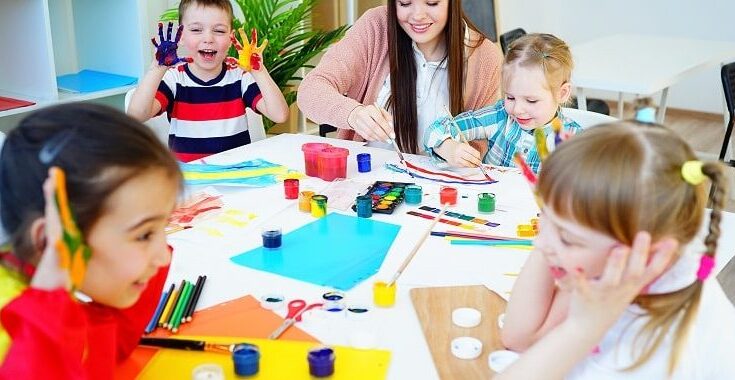INTRODUCTION
Play-based learning plays a very important role in early childhood education. It helps young children grow and learn by giving them chances to explore, discover, and build different skills through play and hands-on activities.
During play, children develop important skills in many areas such as physical movement, thinking and understanding (cognitive skills), emotions, social behaviour, and communication. Centres like trelawnyd little learners embrace this philosophy, offering environments that support development through play. Play-based learning is widely accepted and supported by educational research around the world. In fact, India’s new National Education Policy (NEP) also gives importance to this approach in early education.
WHY PLAY-BASED LEARNING MATTERS?
- Encourages Creativity and Imagination: When youngsters play, they construct their own concepts and stories. This helps them to think in new and creative ways. It also enhances their capacity for self-expression and problem-solving. Whether they’re pretending to be a doctor, building with blocks, or drawing, they’re using their imagination, which strengthens brain development.
- Aids in Social and Emotional Development: Children learn how to collaborate, share, listen, and take turns via play. They gain friendships and teamwork skills from these exchanges. Aids in Social and Emotional Development: Children learn how to collaborate, share, listen, and take turns via play. They gain friendships and teamwork skills from these exchanges. It also supports their emotional well-being, as they learn to handle different feelings, gain confidence, and feel good about themselves.
- Promotes Physical Development: Children’s strength, balance, and body coordination are enhanced by physical play activities like running, leaping, and climbing. Whether indoors or outdoors, play helps them stay active and learn about how their body moves and responds.
- Builds Thinking Skills: Play-based activities help children think, reason, and make decisions. For example, solving puzzles or building a tower with blocks requires planning and problem-solving. These experiences help children connect what they learn to real-life situations.
- Improves Language and Communication: When children play with others or talk to their teachers during play, they learn new words and ways to express themselves. These conversations boost their vocabulary and help them understand how to use language in different situations.
CONCLUSION
Play-based learning is essential during the early years, especially up to the age of 8 when a child’s brain and body are growing rapidly. It helps build a strong foundation for future learning in a way that is fun and enjoyable. By encouraging play both indoors and outdoors, parents and teachers can help children develop a lifelong love for learning. This playful approach not only teaches important life skills but also prepares children to face the world with confidence and creativity.




